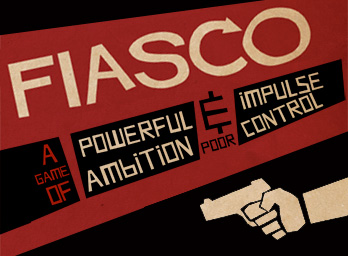There was an additional offshoot of it, in which Edwards engaged in rather scathing self-criticism. He thought that the whole idea of trying to dramatic storytelling via the RPG form - protagonism with these participants, antagonism with these other participants - was flawed. And that narrativist RPGing was an attempt to respond to the flaw that didn't realise it was working within an irrevocably flawed paradigm.Fundamentally the underlying message of the brain damage comment is a cultural criticism. That "storytelling" based roleplaying games were conditioning players to value stories where the perspective characters do not fundamentally drive the action - they are not protagonists as we understand them in the study of literature.
I don't know where those thoughts ended up, or if Edwards ever came up with a game that he felt was more satisfactory. (Would it look anything like A Penny For My Thoughts? I don't know.)



